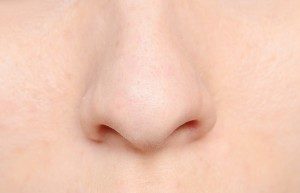 An amazing new study is about to start in Sweden - this study will see if "snot transplants" work for the treatment for chronic sinusitis! Will this turn out to be a permanent treatment? While studies show that probiotic supplements tend not to stick around in the gut (they're gone after about a week), people receiving a fecal microbiota transplant (FMT) find that these microbial communities do stick around (colonize). So there is something about getting an entire microbial community (bacteria, fungi, viruses) that is more effective than just a few species that are in typical probiotic supplements.
An amazing new study is about to start in Sweden - this study will see if "snot transplants" work for the treatment for chronic sinusitis! Will this turn out to be a permanent treatment? While studies show that probiotic supplements tend not to stick around in the gut (they're gone after about a week), people receiving a fecal microbiota transplant (FMT) find that these microbial communities do stick around (colonize). So there is something about getting an entire microbial community (bacteria, fungi, viruses) that is more effective than just a few species that are in typical probiotic supplements.
We have found the same problem in sinusitis treatment - the Lactobacillus sakei treatment works to treat sinusitis, but then doesn't stick around - as evidenced by having to treat again after a cold or sore throat. And so we treat again - and again it's successful. And this happens again and again. Sooo.... it's important to find out if a transplant of the entire microbial community of snot (the sinonasal microbiome) works. And if works, will the treatment be a permanent one? I also wonder.... Several people have mentioned this idea to me, but has anyone with sinusitis tried a "snot transplant" at home? (And yes, this is self-experimentation.)
The description and purpose of the study refer to what this site has discussed for several years: the sinus microbiome is out of whack (dysbiosis) in chronic rhinosinusitis (CRS), whether due to antibiotics or something else (viruses, etc). The study will enroll 30 people, start May 15, 2017, and end December 31, 2018. The purpose of the study is to have patients with chronic rhinosinusits without nasal polyps (CRSsNP) receive microbiome transplants from healthy donors without any sinus problems. They would receive a snot transplant for 5 days in a row. Unfortunately we'll have to wait at least 1 1/2 years for any results. Excerpts from clinical trails.gov:
Purpose: Chronic rhinosinusitis (CRS) is a disease associated with impaired quality of life and substantial societal costs. Though sometimes co-appearing with other conditions, such as asthma, allergy, and nasal polyps, many cases present without co-morbidities. Micro-biological diagnostic procedures are frequently undertaken, but the results are often inconclusive. Nevertheless, antibiotics are usually prescribed, but invariably with limited and temporary success. Accordingly, there is a need for new treatments for CRS.
Recent studies indicate that the sinuses are colonized by a commensal microbiome of bacteria and that damage to this natural microbiome, by pathogens or antibiotics, may cause an imbalance that may promote CRS. Therefore, treatments that restore the commensal microbiome may offer an alternative to current protocols. Arguably, as suggested by studies on patients with intestinal infections (next paragraph), one such possibility may be to transfer a "normal microbiome" to patients with CRS.
A disrupted microbiome is linked to intestinal clostridium difficile infections. Probiotic restitution therapy may be effective even in cases recalcitrant to antibiotic treatment. However, a key to effective probiotic restitution is selecting the bacteria that facilitate regrowth of normal microbiome. As an answer to this, researchers have chosen to simply transplant the entire microbiome from a healthy donor. In the case of clostridium difficile infection in the form of faecal transplants.
In this study, we will examine the possibility to treat patients with chronic rhinosinusitis without polyps (CRSsNP) with complete sinonasal microbiomes obtained from healthy donors. Our analysis will focus on symptoms and signs of disease as well as on nasal inflammatory and microbiological indices.
Detailed Description: Over the last few years the theory of a damaged microbiome as a cause or promoting factor behind chronic rhinosinusitis has gained increasing interest from the scientific community. A number of studies aimed at investigating the microbiota of the nose and paranasal sinuses in health and disease has been published with very varying outcomes. Furthermore, other studies have been aimed at probiotic treatment of sinonasal disease either locally or through immunologic manipulation via the gastrointestinal microbiota.
A problem common to all these studies is that studies examining the normal nasal microbiota have identified a great amount of different bacterial species. It is as of today not known which individual species or combinations of species that promotes health.
In this study the investigators aim at recruiting patients suffering from chronic rhinosinusitis without polyps (CRSsNP) and healthy participants without any history sinonasal disease. The patients and the healthy participants will be examined for infectious diseases in a manner similar to other medical transplant procedures to minimize the risk for the recipients. The patients will then be treated with antibiotics to reduce the bacterial load of the nose and the paranasal sinuses. After the patient has finished the antibiotic treatment a microbiome transplant will be harvested from the healthy participant as a nasal lavage. The raw lavage fluid will then be used to transplant the microbiome to the patient. The procedure will be repeated for five consecutive days. The outcome measures analysed will focus on subjective sinonasal health and symptoms of the patients but also include nasal inflammatory and microbiological indices.
